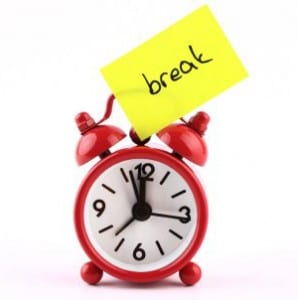 “The music of Miles Davis was great not just because of the notes but also the silences between the notes.” – Unknown
“The music of Miles Davis was great not just because of the notes but also the silences between the notes.” – Unknown
That quote hit me like a thunderbolt. As a meeting designer for Ketchum, I understand the value of the meeting break – that much-needed pause in the day’s business that allows you to connect with colleagues over a cup of coffee, check in with the home office, grab a snack or take care of other, ahem, business. However, the real value of the meeting break is silence … the ability to step away from the white noise and reflect and reenergize. Meeting participants need ample time and space to reflect on what they heard in the meeting room, ponder how those learnings can be applied and reenergize their minds for the next session.
When I work with clients on their meeting designs, I try hard to stress the importance of long breaks. All too often, though, there is so much information that needs to be on the agenda that the breaks become shorter and shorter. And that, my friends, is counterproductive to the meeting objective, which is to provide important, useful information that can be shared with colleagues.
Without enough time to reflect on those learnings, that important, useful information flies out of the brain and is replaced by something else (usually the thought of the next meal). There is a ton of research to confirm this, but I will refrain from quoting it because it would take way too long and you would need a break from reading this. However, if your curiosity has gotten the best of you, please check-out this article from Meeting Professionals International, this blog post from Harvard Business Review or this one from Jeff Hurt (check out item #4). If you are more inclined to trust me, then I will just ask you to again read the above quote and remember: If you want a great meeting, content is king, but silence is golden.
So, when you are charged with running any meeting lasting over 90 minutes, I hope that you remember the importance of the break. While they may take precious minutes away from your other agenda items, what you lose in time you’ll gain in effectiveness and satisfaction.


